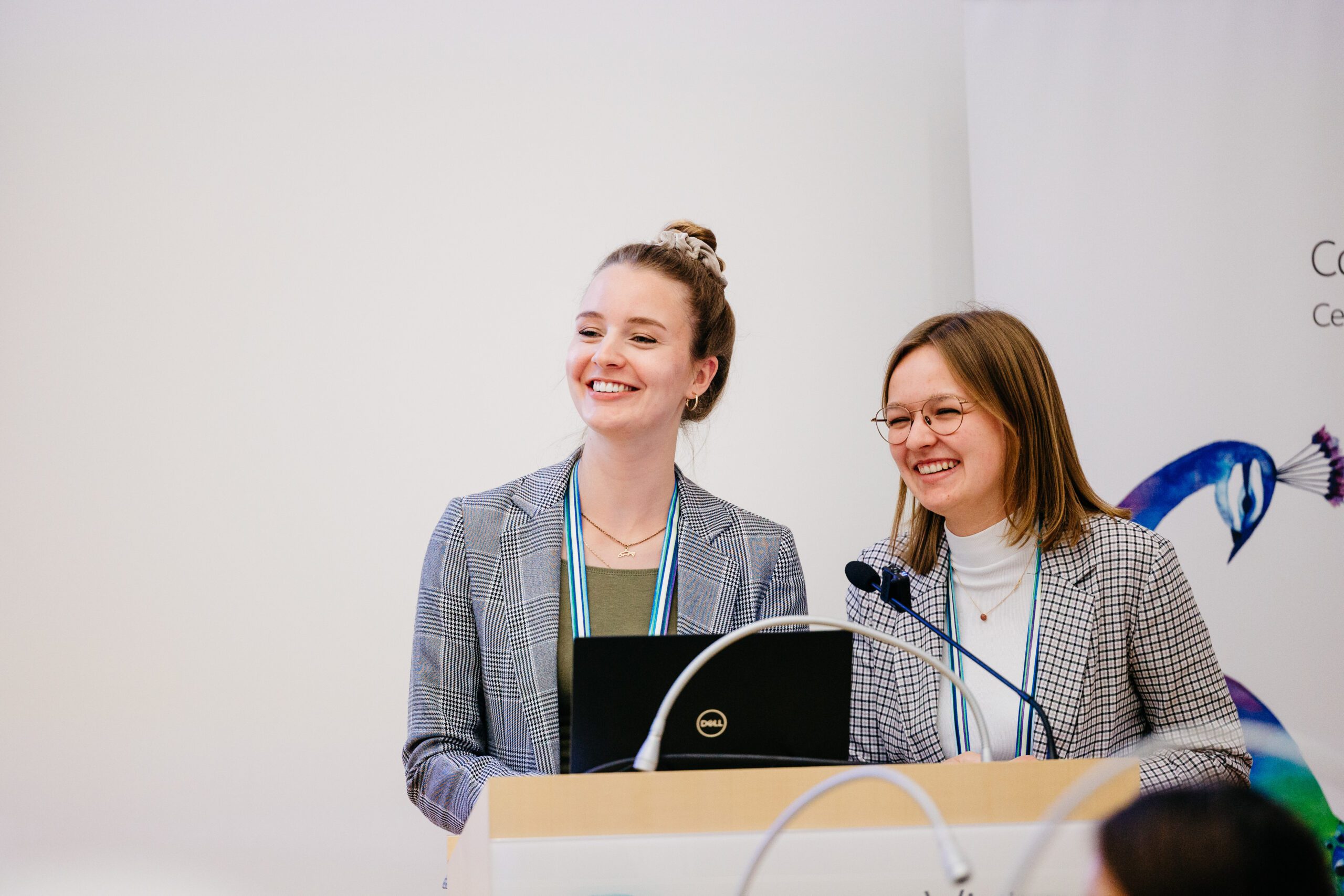Bradford student is 2022 FORCE winner

From left: Elena Garcia Rubio, Muskaan Hussain, James Wolffsohn, Fabio Carta and Stefan Bandlitz at the celebration dinner
Representing the UK and Ireland, Muskaan Hussain from the University of Bradford has won the 10th edition of the Future Ocular Research Creativity Event (FORCE) and the prestigious 2022 Student of the Year title.
The annual competition, which took place in September at CooperVision’s Centre of Innovation in Budapest, Hungary, saw university and college students from nine countries across Europe come together to showcase their contact lens or anterior eye-related research projects. The students also get the chance to visit CooperVision’s manufacturing site and connect with other students and colleagues from within the industry, whilst developing their professional network to benefit their future careers.
Having spent six to eight weeks conducting their research, the students had 30 minutes to present their findings to the expert panel of judges including: researchers and clinicians Elena García Rubio (Instituto Nacional de Optometría, Spain), Dr Stefan Bandlitz (Cologne School of Optometry, Germany), Dr Houda Baïz (Ophtalys, France) and chair of the judging panel, Professor James Wolffsohn (Aston University, UK).
Muskaan’s winning project, supervised by Dr Neema Ghorbani Mojarrad, investigated whether extended depth of focus and dual-focus soft contact lens designs affected accommodative micro-fluctuations and eye movements during reading tasks in a prospective, double-masked, cross-over study.

Second place was awarded to Vivien Kleinschmidt (left) and Juliana Zimmermann (right)
In the study, 23 participants with normal binocular vision and accommodation were fitted with three lenses in a randomised order within a single visit; extended depth of focus (EDOF) lens design; dual-focus (DF) lens design and single vision (SV) contact lens as a control. No significant differences were found in low- and high-frequency accommodative micro-fluctuations between the three lenses, but for fixations per row, fixations per minute, mean regressions per row and the total number of regressions, significant differences were found.
Post-hoc analysis of the data indicated that the results for the EDOF lens design were significantly different from the DF and SV lenses. The findings suggested that EDOF lenses may cause changes to eye movements which are different to the other lenses – particularly regressions which appeared to increase significantly – resulting in reduced visual comfort and reading speed.
Speaking of her experience, Muskaan said: “Winning the 2022 FORCE final has been my best career experience so far. Networking with like-minded people from across the globe has developed my horizons, and this process has reminded me that if you believe in yourself and are open to learning, incredible opportunities can come your way.
“I would like to thank my parents and family for encouraging me to put myself forward for this opportunity. My supervisors at the University of Bradford, Dr Mojarrad, Dr Cufflin and Dr Mankowska, have been a pleasure to work with on this project, and I really appreciate their continued support.”
Muskaan will present her findings at the British Contact Lens Association’s clinical conference and exhibition in Manchester next June.